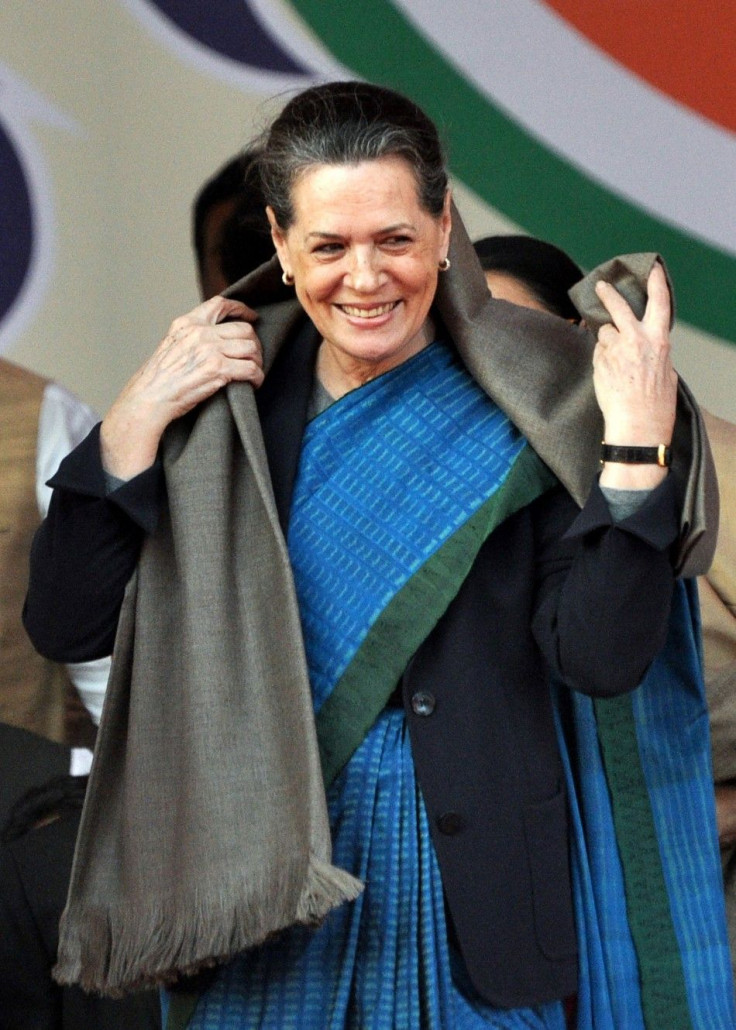India-Italy Row: Why Sonia Gandhi’s Italian Connection Could Be Delaying Resolution

The delay in resolving the crisis situation of Italian nationals being detained and held hostages on Indian soil may have something to do with India's ruling coalition United Progressive Alliance (UPA) Chairperson Sonia Gandhi's Italian roots.
Gandhi's nationality has never been officially a part of the public discourse on both the incidents. However, it cannot be ruled out that the UPA was cautious enough not to expedite the resolution to avoid her loyalty towards India being questioned.
Italian nationals Claudio Colangelo and Paolo Bosusco, held hostages by the Naxals in the North Indian state of Odisha since March 14 in order to strike a deal with the government, were released after 11 and 29 days in custody. However, the case involving Italian marines charged with the death of the two Indian fishermen remains unsettled.
Fishermen Ajesh Pink and Valentine aka Gelastine, natives of the states of Kerala and Tamil Nadu in South India, were shot dead by members of an Italian Navy Vessel Protection Detachment on board oil tanker MV Enrica Lexie Feb. 15.
Despite the coercive calls from the European Union and Italian Premier Mario Monti for the release of the marines who were held for trial in an Indian court, Indian Prime Minister Manmohan Singh has remained unmoved. Following a telephone conversation with his Italian counterpart Mario Monti in March, Singh said his government could in no way intervene in the legal proceedings involving two Indian fishermen's death.
Singh had reportedly told Monti that the case was before a court of law, and the executive never interferes in the functioning of the judiciary in India. Meanwhile, the owners of the Italian oil tanker MV Enrica Lexie have moved to the Supreme Court challenging an order from the High Court of South Indian state of Kerala, seeking the release of the vessel.
India's notoriously slow judicial procedure and red-tape culture, along with the political sensitivity associated with the killing of fisherman from a state with major Communist support, has created a near-impossible situation for the Italian government.
Interestingly, it is not only the Communist party which has political motives in slowing down or at least not speeding up the process. The Congress party too needs to take care that Gandhi's interests are not hurt in reaching a resolution.
Gandhi, revered in Italy, as an Indian who is loyal to its interests, however, has faced enough flak in the past from her political opponents for allegedly harboring political ambitions despite not having been born in India. Though she has surrendered her Italian passport in favor of full Indian citizenship, opposition and some of the allies of Congress party have always been eager to bring up the issue every now and then.
Janata Party president Subramanian Swamy said in October last year that Gandhi's son and Congress general secretary Rahul Gandhi was not qualified to become the prime minister, as he still has Italian citizenship.
With the Congress party seriously looking into projecting Rahul as the Prime Ministerial candidate for the 2014 general elections, the last thing the party would want now is a public debate on the Italian roots of both mother and son.
Considering these, it is hardly surprising that the Indian government has been noticeably complacent about speeding up the procedures for the release of the Italian marines.
© Copyright IBTimes 2024. All rights reserved.












